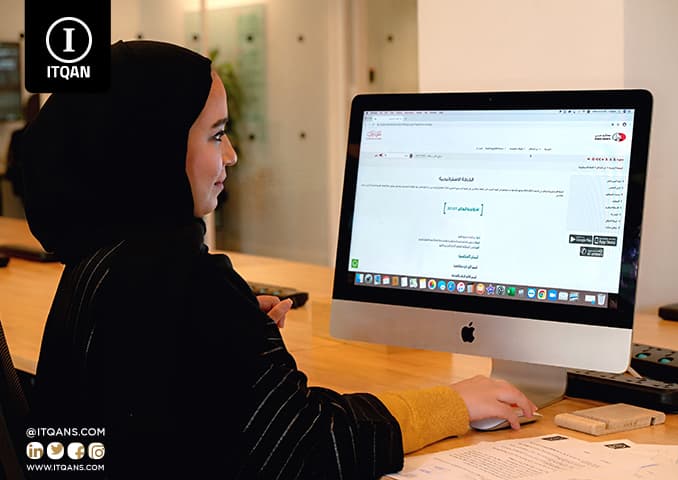Dubai is one of the most prominent global destinations for establishing companies, thanks to its strategic location and the dynamic economic environment it provides. The city is a global business hub, combining innovation with cutting-edge infrastructure, making it a favorite destination for investors from all over the world. If you are thinking about establishing a company in Dubai, you are entering a world full of opportunities and challenges that require a precise understanding of the necessary procedures and steps.
Establishing a company in Dubai is not only an opportunity to benefit from the attractive business environment, but also to enjoy multiple benefits such as tax exemptions, complete freedom of ownership for foreigners in free zones, and simplified bureaucratic procedures. Dubai provides a variety of options for establishing companies, starting from free zones that help simplify procedures and provide the necessary licenses, to economic zones that allow companies to expand and grow within a stimulating environment.
The process of setting up your company in Dubai will depend on the type of business, location, and legal structure you choose. There are several types of business entities you can establish, such as limited liability companies (LLC), companies in free zones, and partnerships. Each of these entity types comes with its own set of benefits and requirements.
In this article, we will review the steps for establishing a company in Dubai in detail, from choosing the type of company and registering it, all the way to obtaining the necessary licenses and opening bank accounts. Our goal is to provide you with all the information you need to ensure you start your new venture successfully in this thriving city.

جدول المحتوى
ToggleBasic steps to establish a company in Dubai
Establishing a company in Dubai requires following a series of basic steps to ensure compliance with legal and regulatory requirements. Here are the main steps to establish a company in Dubai:
- Determine the type of company and business activity: Choose the type of company that suits your business, such as a limited liability company (LLC), a company in a free zone, or a joint stock company.
Determine the business activity the company will undertake, as this affects the type of license and permits required. - Choosing a company name: Choose a business name for the company according to local laws.
Make sure that the name is compatible with the standards of the competent authorities and is not reserved for other companies. - Preparing a business plan: Prepare a detailed business plan that includes company goals, market strategies, and competitor analysis.
You may be required to submit a business plan as part of licensing requirements in some cases. - Determine the location of the company: Choose a suitable location for your office or company headquarters, whether it is in a free zone or in one of the internal areas.
Rent or buy the property as per the business requirements. - Submit an application for registration and licensing: Submit an application to obtain a commercial license from the local economic department or from the administrative body of the free zone.
Gather and attach the required documents such as passport, rental contract, and application form. - Open a company bank account: Open a business bank account in the name of the company.
Submit the required documents such as the registration certificate, lease contract, and personal identification of the directors. - Obtaining work and residence visas: Apply for work and residence visas for managers and employees.
Fill out the required forms and submit the required documents to the competent authority. - Registering the company in government departments: Register the company with other government agencies such as the local tax authority, if necessary.
Obtain the permits and certificates required for the business. - Completing the legal procedures: Perform all necessary legal procedures such as documentation, registration in the chambers of commerce, and social insurance.
- Start-up: After completing all procedures and obtaining licenses and visas, you can start business operations and operate the company.
Types of companies that can be established in Dubai
Here is a table showing the types of companies that can be established in Dubai, with some basic details about each type:
| Company type | Description | Main requirements | Geographic area |
|---|---|---|---|
| Limited Liability Company (LLC) | A commercial company allows the distribution of responsibility between partners by a certain percentage. | 51% local partner, capital requirements, business registration. | Interior areas |
| Branch Office | A branch of a foreign company doing business in Dubai. | Registration of the parent company, appointment of a local lawyer, legal documents. | Inland areas and free zones |
| Free Zone Company | A company registered in a free zone, allowing full ownership by foreigners. | Requirements for registering a free zone, renting an office, submitting a business plan. | Free zones |
| Sole Proprietorship | A business owned by one individual, who is responsible for all debts and obligations. | Individual registration requirements, identity documents, office rental. | Interior areas |
| Partnership | A company consisting of two or more partners who share responsibility and profits. | Partnership documents, business registration, capital requirements. | Interior areas |
| Public Joint Stock Company | A joint stock company whose shares can be traded on the financial market. | Large capital requirements, stock market registration, legal documents. | Interior areas |
| Private Joint Stock Company | A joint stock company whose shares cannot be traded on the financial market. | Capital requirements, incorporation documents, office rental. | Interior areas |
| Single Member Company | A company owned by one person, who is solely responsible for all debts. | Individual registration, identity documents, office requirements. | Inland areas and free zones |
| Investment Company | A company specializing in investment and asset management. | Large capital requirements, investment registration, legal documents. | Free zones |
| Technology Company | A company focused on providing technology solutions and services. | Commercial registration in the technology sector, office rental, legal documents. | Free zones |
These types of companies provide various options to suit the different needs and requirements of investors in Dubai. Investors can choose the most suitable type based on their goals and business requirements.

Advantages of establishing a company in Dubai
Establishing a company in Dubai provides many advantages that make it an attractive destination for investors and businessmen. Below are the most prominent of these advantages:
- Attractive tax exemptions: Dubai offers tax exemptions, including not imposing income tax on companies, and exemptions from corporate tax in many free zones. Value Added Tax (VAT) is also imposed on a limited scale compared to many other countries.
- Full foreign ownership: In many free zones, foreign investors can own 100% companies without the need for a local partner. This gives them complete control over operations and decision-making without interference.
- Ease of incorporation procedures: The company registration process in Dubai is simplified and efficient, allowing investors to establish their companies quickly. Procedures include submitting basic documents, obtaining the necessary licenses, and completing registration processes.
- Advanced infrastructure: Dubai provides world-class infrastructure, including modern commercial facilities, advanced transportation networks, and advanced ports and airports. This contributes to facilitating business operations and enhancing the effectiveness of logistics services.
- Strategic location: Dubai is located in a distinctive geographical location that makes it a commercial center linking the markets of Europe, Asia and Africa. This strategic location enhances opportunities to reach new markets and expand business.
- Economic and political stability: Dubai provides a stable investment environment with economic and political stability, which reduces risks and enhances investor confidence in long-term investment.
- Diverse financing opportunities: Dubai has multiple financing options including local banks, financial institutions, and investors. This enables companies to secure the necessary financing to support their growth and expansion.
- Incentives and benefits in free zones: Dubai’s free zones provide a range of incentives, such as customs exemptions, simplified licensing, and fast procedures for work and residency visas. These incentives support starting and operating businesses more efficiently.
- Diverse consumer market: Dubai is considered a large and multicultural consumer market, which provides companies with broad opportunities to market their products and services to a wide, multinational audience.
- Government support for business initiatives: The government in Dubai supports business initiatives by providing facilities, support projects, and incentive programs to encourage entrepreneurship and promote innovation.
- Inspiring work environment: Dubai provides an encouraging work environment equipped with the latest technologies and facilities, which contributes to creating a professional and comfortable work environment.
In conclusion, it is clear that setting up a company in Dubai represents an exciting and rewarding opportunity for investors from all over the world. With its dynamic business environment, advanced infrastructure, and encouraging economic policies, Dubai provides an ideal platform to start a business and achieve success. The city is characterized by great flexibility in the field of establishing companies, as foreign investors can benefit from the facilities available in free zones or even establish partnerships with local investors in other cases.
The basic steps for establishing a company in Dubai include choosing the type of business activity, obtaining the appropriate license, and providing the necessary legal documents. It is also important to understand the associated costs such as registration fees and rents, as well as requirements for work and residency visas.
Besides administrative procedures, a project feasibility study and understanding of the local market are key factors to ensure the success of the investment. Directing efforts towards innovation and adopting the latest technologies can enhance the chances of achieving project goals.
Dubai is not only an attractive destination for investment because of its strategic location and infrastructure, but also because of its continuous support to investors through various incentive programs and facilities. Compliance with local laws and legislation, and consulting local experts, is an essential part of the success strategy.
Ultimately, Dubai offers a vibrant investment environment full of opportunities. With good planning, commitment, and understanding of market requirements, investors can achieve great successes and benefit from the sustainable growth that this leading city offers.
The most frequently asked questions about establishing a company in Dubai
How to deal with commercial disputes in Dubai?
Commercial disputes can be dealt with through arbitration procedures or going to local courts depending on the type of dispute.
Can foreign investors benefit from additional incentives?
Yes, Dubai provides additional incentives to investors in some sectors or regions, such as supporting startups and technology.
Can foreign investors hire in Dubai?
Yes, investors can hire employees from abroad, and they must follow labor laws and submit appropriate visas.
What are the government programs to support companies in Dubai?
Government programs include support for startups, investment incentives, and providing advice and assistance in legal procedures.


















